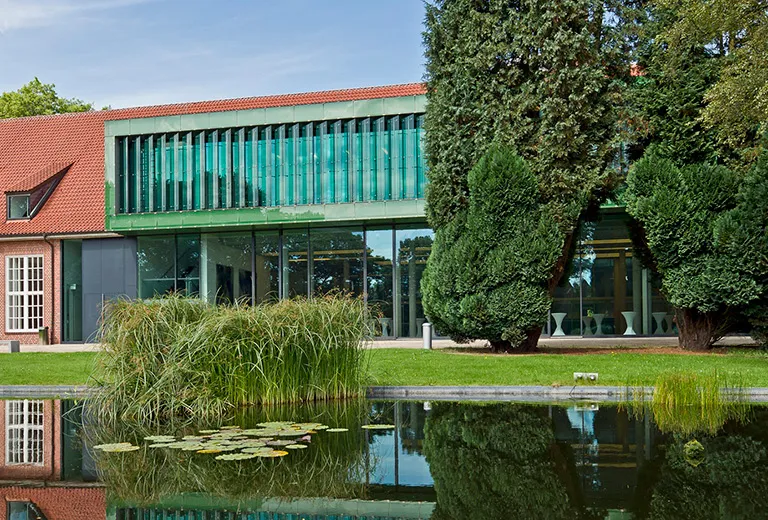

Constructor University Community Standard
Constructor University Community StandardPreamble
The Constructor University Community Standard is a statement of the values and ideals of the Constructor University Community. It is meant to encourage individual and communal growth through practice and reflection. This is a living document which invites critical evaluation and is open to revision by all members of the community every three years. It reflects our diversity and affirms our commitment to non-discrimination regarding gender, age, religion, race, sexual orientation, nationality and culture.
Living together requires consideration of each other’s boundaries and the ability to constructively resolve conflict. Building a community requires a set of shared values and goals. Making a vibrant community requires a sense of ownership, responsibility and community spirit.
This document is a blueprint for living, learning and working together as a community. It refers to the core values of humankind. The Community Standard is also meant as a map for the future, as we encourage those who pass through Constructor University to take an ethical stance in the world. We invite each of you to participate.
I. Reasons for the Community Standard
a. Promote shared sense of community
b. Codify a standard of conduct that we all agree to live by based on a sense of shared values, ideals and general way of living and working together
c. Communicate our values and mission to the outside world
d. Represent who do we want to be in the world
e. Provide community members with a means of recourse in case of conflict or other issues
f. Promote positive leadership values
II. The Community Standard encompasses the following values and ideals
a. Interpersonal Respect and Consideration
i. Courtesy and compassion as the standards of behavior in interactions between all individuals.
ii. Maintaining a balance between assertiveness and consideration by speaking up when necessary while taking into account the feelings of others.
iii. English as the community language of mutual inclusion.
b. Intercultural Respect
i. The active pursuit of cross-cultural communication and interaction by keeping open minds and honoring the community’s diversity.
ii. The development of positive exchange between cultures through mutual tolerance, respect, curiosity, education and learning.
c. Environmentalism
i. Respect for our infrastructure and campus environment.
ii. Sustainable behavior and responsible use of resources in adherence with university policies.
iii. Environmental stewardship and consideration.
d. Integrity
i. Honesty and integrity in interpersonal relations that translate into actions as well as into words.
ii. Proactively seeking solutions through respectful communication.
iii. Academic behavior in adherence with the Code of Academic Integrity.
iv. Balancing self-interest and the common good.
e. Leadership
i. Providing guidance and direction.
ii. Ability to engage in constructive conflict resolution.
iii. Encouraging professional, academic and personal growth.
iv. Integrity and transparency in decision making.
v. Instigating positive change by being proactive.
f. Courage
i. Having the courage to say what is important.
ii. Having the courage to step in when necessary.
iii. Having the courage to deal with consequences of your actions.
iv. Having the courage to live by, express and uphold our ideals.
g. Self-initiative
i. Taking personal responsibility and living up to it.
ii. Responsible entrepreneurship.
iii. Proactive behavior, taking and inspiring initiative.
iv. Instigating change and innovation.
h. Sense of Community
i. Awareness of the reciprocal relationship between individuals and the community
ii. Building community through consensus and cooperation.
iii. Fostering community spirit. iv. Bringing together cultures to form the Constructor University community.
v. Understanding other cultures as key to better cohabitation.
vi. Engaging in community life and activities.
i. Integration beyond Constructor University
i. Outreach through community service and open events.
ii. Integration into our neighborhood and into the greater Bremen community.
iii. Developing skills necessary to adapt to living in different international communities.
III. Community Standard Steering Committee
a. The Community Standard Steering Committee promotes the Community Standard and provides clarification and information to any community member.
b. Reconsideration, revision and confirmation start with a general call for proposals of changes/addendums put out by the Community Standard Steering Committee.
c. Each constituent group appoints one representative to the Steering Committee.
d. The constituent groups are: Undergraduates, Graduates, Faculty, Staff, Alumni, Academic Council.
e. Re-evaluation, revisions and confirmation of the Community Standard take place every three years under the same conditions as required for initial ratification
IV. Community Standard as Point of Reference
a. Academic Integrity Committee
b. Equal Opportunities, Dual Career and Family Friendliness Committee
c. Campus Life Committee
d. Undergraduate Student Court
Each of these Committees has its respective structures and rules of procedure. The Community Standard is not a disciplinary or punitive tool, rather it states what we are and continuously strive to be as a community.
V. Ratification of the Community Standard
a. Ratification takes place as online referendum requiring a two-thirds majority of votes cast in favor of the Community Standard within each constituent group.
b. The Community Standard is adopted if all constituent groups meet the ratification requirements. The constituent groups are: Undergraduates, Graduates, Faculty, Staff, Alumni, Academic Council.
c. Each member of the community shall have one vote.
d. The Community Standard is reviewed and approved by the Board of Governors.
VI. Dissemination of the Community Standard
a. The Community Standard is prominently posted on the main Constructor University website.
b. Students sign an acknowledgement of the Community Standard during their application process and make a commitment to the Community Standard during the Matriculation Ceremony.
c. Faculty and staff sign a receipt sheet when they sign their work contract.
d. The Community Standard will be made available to current community members for their signature.